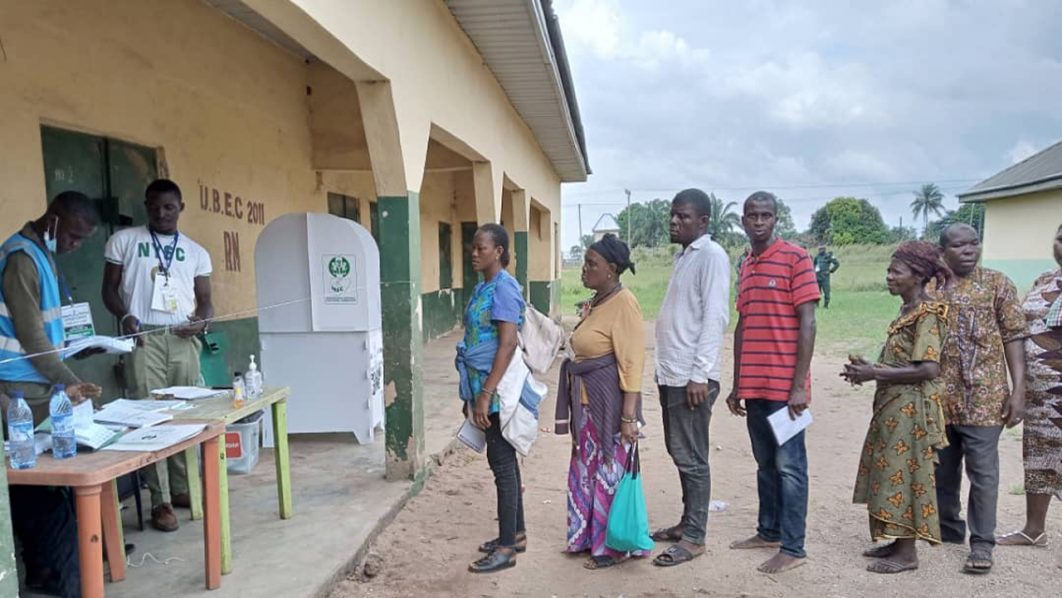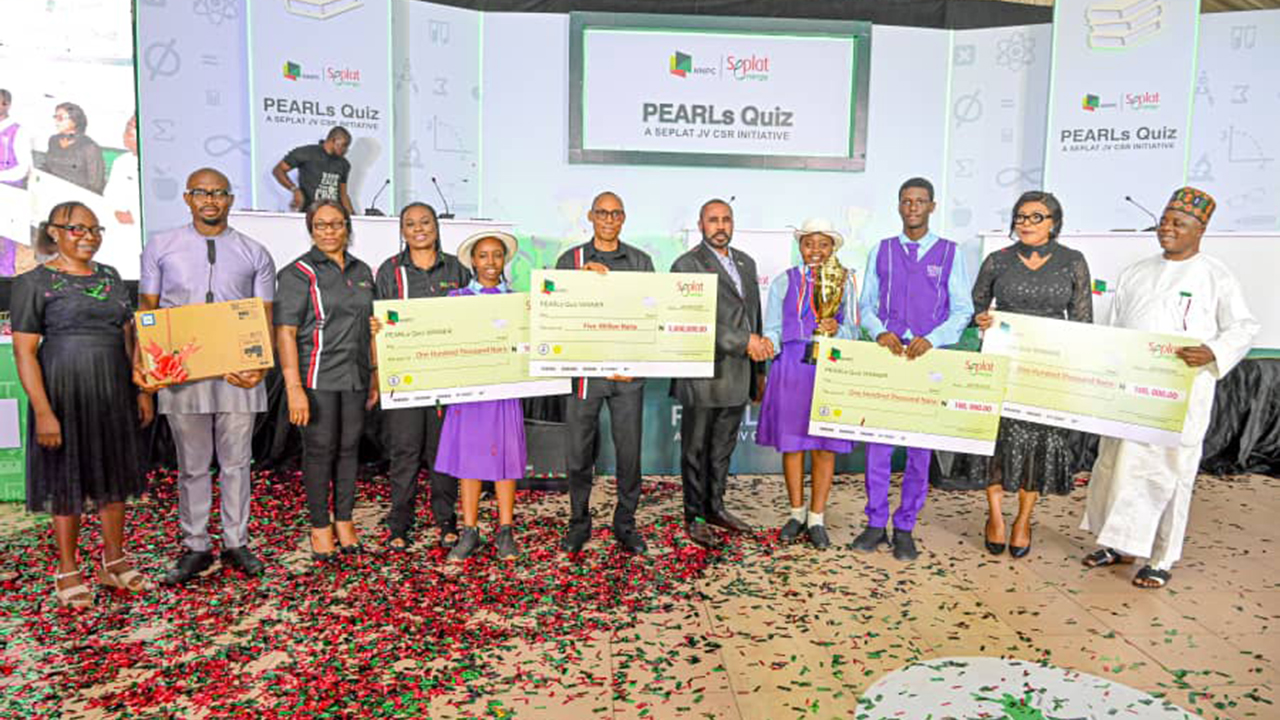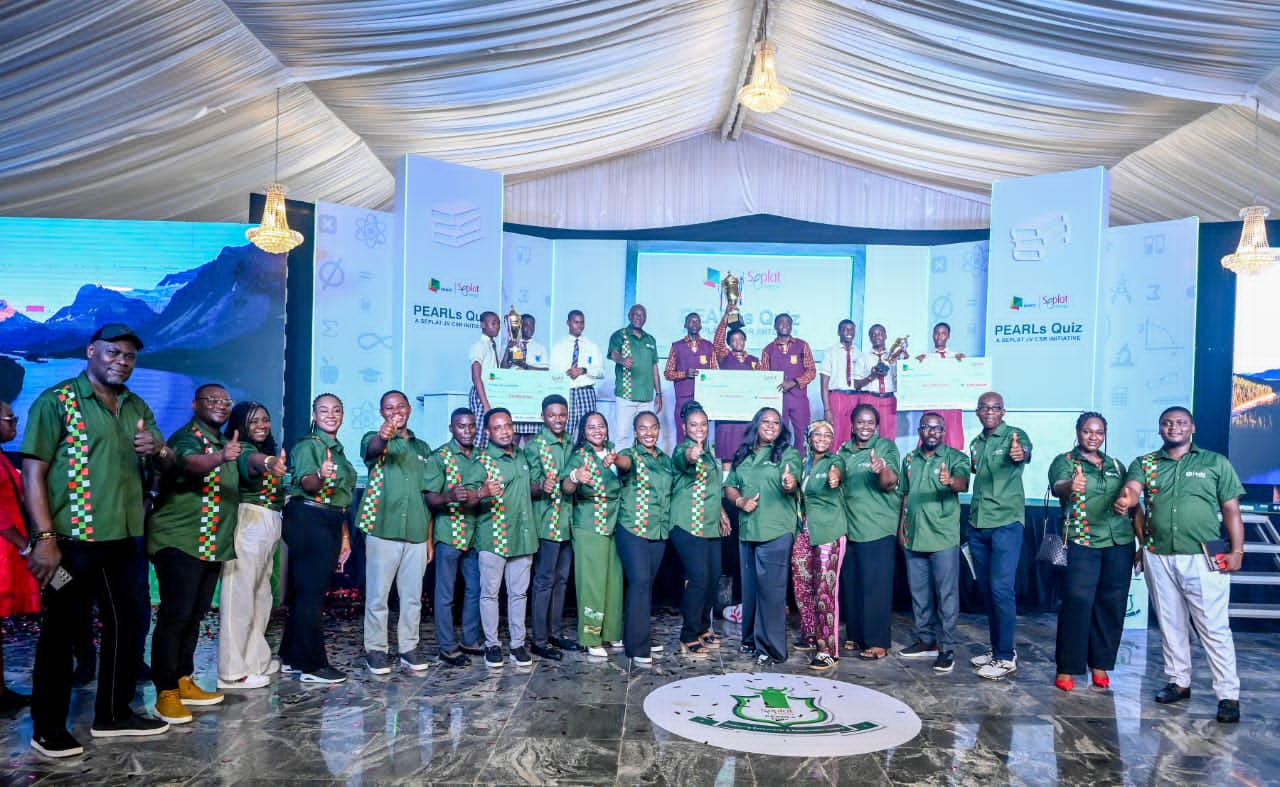[dailymotion code=”x85egyp” autoplay=”yes”]
Last Saturday’s governorship election in Anambra State may have been concluded, but one of the factors that stood strong and contributed immensely to the success of the poll was the resilience and determination of the electorate.
Another factor was the determination and commitment of the Independent National Electoral Commission (INEC) to live up to its responsibility and ensure that the exercise is rancor-free.
Indeed, those who watched from the sidelines, at the weekend, would rarely believe that the election was held without bloodshed and produced results. This is because, prior to the election, there were heightened fears that the exercise might not hold following threats by some groups as well as insecurity created by killings and kidnappings that marred the programmes and campaigns of the various political parties.

As the election drew closer, the Indigenous People of Biafra (IPOB) had announced a one-week sit-at-home in the Southeast region. The action, according to the group, was to press for the unconditional release of its leader, Mazi Nnamdi Kanu. IPOB had stated that the sit-at-home exercise would begin on November 5, a day to the election, should the Federal Government fail to release Kanu. The directive was the final blow that almost threw spanners in the works of INEC but other stakeholders kept assuring that the election would hold. The conflicting sound bites made many leave the state for safer areas.
Nevertheless, relief came when IPOB called off its planned sit-at-home a day to the election. The group urged the electorate in Anambra State to freely go out and perform their civic obligations. That was the tonic needed by the people to demonstrate that they owned democracy on the day of the election.
For the poll that was billed to start at 8:30 am, eligible voters had started to throng the polling units as early as 8:00 am. When The Guardian arrived at the Arroma junction, Awka polling units 1, 2 and 3 at about 8:15 am, it discovered that people were already waiting for the arrival of the INEC officials. An eligible voter, Paul Odenigbo, who was interviewed at Polling Unit 1, stated that he arrived at the booth by 8:00 am because he wanted to vote on time.
“I heard the announcement that accreditation would start by 8:30 am but that is not the issue. I wanted to be early, but now that the officials are not here, I will wait until they come,” he added.
Moments later a vehicle bearing canopies and chairs meant for the polling unit arrived. The voters surged forward and aided the driver to unpack and on their own, began to set the canopies and arrange the chairs. These were concluded before the arrival of the INEC officials at about 8:55 am.
While they sat to wait, a woman, who gave her name as Comfort Ike, told The Guardian: “We have to get ready and wait for them to come. I have always voted here. In 2017, I also voted. So I am going to vote in this one.”
Mr. Chinedu Okeke who uses a walking stick was brought to the polling unit in a tricycle. While watching the INEC officials as they pasted the names of eligible voters on the wall, he beckoned on one of the voters and said: “My son, check for Chinedu Okeke and tell me my number.”
At the All Saints Church compound where there were three polling units, eligible voters had lined up to vote about 10.20 am. While on the queue, an INEC official in one of the polling units, who addressed them, had urged the voters to continue to maintain orderliness, assuring that, “anyone qualified to vote will be allowed to vote and we will also ensure fairness to all parties.”
A 75-year-old Peter Nweke, who was the first to vote at the unit, had expressed joy that “finally, we are voting today. There were many threats in the way of this election but to the glory of God, it is happening.”
Asked how he felt about the threats over the election, he said: “Anambra election has never gone without threats. The only new thing about this one is that they started killing people, including innocent people. We had those who also said the election would not hold and the declaration of sit-at-home. The truth about these things is that they didn’t start today. I was not moved at all by their threats. If we did not vote today (Saturday), it means we have derailed democracy in the state and anything can happen that is undemocratic. That is the situation.”
While the voters queued to perform their civic obligation, a staff of the school had walked in to open the door of one of the classrooms and asked the young men around to help arrange chairs for anyone who wished to sit down and wait to cast vote.
At the Aoghelli Square, Awka, those who gathered to vote waited until they performed the exercise. Despite the hitches posed on some eligible voters by the inability of the Bimodal Voter Accreditation System (BVAS) to capture them, they patiently waited until there was a breakthrough.
A young man, Alex Chibuko, who gave his age as 28, told The Guardian: “I came here by 9:10 am. INEC officials had already set up their facilities when I got here. In fact, a few people had voted, but when it got to my turn around 9:50 am the machine refused to authenticate me. You can see that it is almost 11 am and I am yet to vote. I am not in a hurry. I am not the only person experiencing the hitch. The INEC officials have been assuring us that we will vote. So, I am prepared to wait.”
Chibuko said he was almost discouraged from going to vote, revealing that his neighbours, especially those who left town before the exercise, had asked him to stay indoors while the exercise lasted. “But I told myself that the only way I can participate in entrenching democracy in this state is by casting my vote. If I did not travel out of town, I have my voter’s card and didn’t vote, of what use am I to society? Is it when they start complaining tomorrow that the election produced a bad leader and I will join them to complain? I have to show that I am a bonafide citizen from Anambra State, who has the right to choose those that will represent me,” he stated.
Mrs. Nkechi Okonkwo, who voted at Akoghelli Square, ward 7, also said: “It was a difficult decision for me, especially when the IPOB declared the one-week sit-at-home. That declaration could have compounded the already bad situation. But when they said they cancelled it, it brought some relief to us. Even at that, a few of my friends insisted that they would not come out to vote. However, on Friday night, I made up my mind to vote. I did this knowing that if I did not vote, I would not blame anybody for whoever emerged as the governor of the state. I am happy that I voted and that I have contributed to the emergence of a new governor for Anambra State.”
Aside from the sacrifice of waiting to vote in the election, even in the face of the lateness of the electoral materials in some polling units, while voting progressed, a viral video from a polling unit in Ebenebe, Awka North began to circulate. The video showed how women turned down N5000 allegedly offered to them by some party agents.
One of the women was heard shouting: “We don’t want your money. We have rejected you and your party.” Looking at the women, they did not appear like people who are well to do and would have taken care of their families with the money, but they were emphatic that they didn’t need it.
The story was similar to the development in Ihiala Local Government where an electoral officer allegedly tried to compromise the process by accepting fake result sheets from a politician. The voters who had gathered were said to have gotten wind of the deal and arrested the electoral officer who was later handed over to the police.
Earlier, the INEC Chairman, Prof. Mahmood Yakubu, had told electoral officers participating in the poll that all eyes were on the commission to deliver a free and fair election. He charged them to ensure that every vote counted in the election, insisting that they should ensure that only the voters determine the next governor of Anambra State.
The INEC, to a reasonable extent, remained firm and strong despite obvious challenges. For instance, it was gathered that mobilisation of electoral materials to the polling units became an uphill task in some areas as transporters hired by the commission did not show up after collecting payments. The commission did not rest on its oars as it made alternative arrangements to move the materials and staff. There were also cases of some trained staff absconding from duty posts, but they were promptly replaced.
The Guardian observed that all through the election, INEC mobilised its technical officers who swiftly moved to different polling units where the technological devices being used for the poll malfunctioned to repair them and ensure the continuation of the process.
Speaking with The Guardian last Thursday in Enugu, a chieftain of the Peoples Democratic Party (PDP), Nkemdilim Okafor, stated that the Anambra election should serve as a springboard to grow democracy in the southeast and Nigeria in general.
“I admire the fact that all through Saturday when the election was held in the 20 of the 21 local councils, I did not hear any story of a gunshot, ballot snatching, thuggery or killing of anyone. That is a plus for the people of Anambra State. It shows they have matured in this democracy and I urge other states to emulate them.
“Now, the winner, Soludo, has been declared and almost all those who ran with him one way or the other have congratulated him. The outpouring of encomia indicated that the winner reflected the choice of the people. Since Soludo was declared, we have not heard about protests anywhere in the state. That shows the people have matured.
“Look at the number of money bags that came out in this election. The people wanted money quite right, but the collective interest of the state was paramount. That was why they shunned money. It is a big lesson to those who think they can always truncate the will of the people with money. We must move this democracy forward,” he said.






